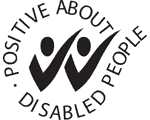‘The Bangalore unit of Navratna Defence PSU Bharat Electronics Ltd. (BEL) has received the National award for “Empowerment of Persons with Disabilities (2011)” under the “Best Employer” category. According to BEL communiqué, disabled people account to 2.75% of the PSU;s workforce at its Bangalore complex who have been offered a wide spectrum of welfare initiatives. Grace time, free transport, hearing aids, walking sticks for the blind, calipers with special shoes for employees suffering from orthopaedic problems and wheel chairs etc. are some of the facilities provided. Besides ramps, special toilets and ATM counters have also been set up at various locations within the facility to make life easier for these employees. BEL also runs a school, Ashankura for special children. An ancillary unit named Vijaya Physically Handicapped Association has been established in the BEL industrial estate for providing jobs and rehabilitating the disabled. Disabled sportsmen and sportswomen are sanctioned special leave ton attend state national and international competitions. What is noteworthy is that some physically challenged employees of BEL have received the Eklavya and Arjuna awards.’ (The Times of India)
In its Code of Practice on Managing Disability in the Workplace, the ILO defines a disabled person as “an individual whose prospects of securing, returning to, retaining and advancing in suitable employment are substantially reduced as a result of a duly recognized physical, sensory, intellectual or mental impairment”. As a comprehensive human rights Convention for people with disabilities, the UNCRPD recognizes that disability is an “evolving concept”, stating that “persons with disabilities include those who have long term physical, mental, intellectual or sensory impairments which in interaction with various barriers may hinder their full and effective participation in society on an equal basis with others”. Organizations benefit from having employees who have the skills to do the job effectively and efficiently. For many people, having a disability does not impact on their ability to do the essential requirements of a job. Recognizing the true potential of disabled people and creating workplaces and work-practices that are conducive to such people is the need of the hour, especially in countries like India.
BEL has taken that extra-step and its recognition should be an eye-opener for many. Internationally such awards in the year 2011 have gone to companies like CISCO, KPMG, EMC2 awarded by Springboard Consulting.
Some countries are far ahead in institutionalising such practices. Australia for instance has Australian Network on Disability that clearly lays down code of practices for employers with respect to disabled people. In UK employers are bound by the Disability Discrimination Act (DDA). The employers who exhibit the two tick symbol are thought to have a positive attitude towards job applications from disabled people.
Employers who use the disability symbol make five commitments regarding recruitment, training, retention, consultation and disability awareness.
The disabled can also be read as differently–abled and they bring immense talent along with them and add value like any other ‘normal’ employee. Evidence of the ability of the disabled comes from a lot of true stories:
Naseema Mohammed Amin Hurzuk of Kohlapur, a wheelchair user since the age 16, she has rehabilitated over 8,000 disabled children through various avenues that include a medical aid centre, vocational training centre, an integrated school, hostel and co-operative credit society.
Buse Gowda, Bangalore, a visually impaired person, is known for his mastery in classical dance. He is now part of a dance troupe called Natyanjalli and has over a thousand dance performances, world over, to his credit.
Pradeep Singha, Mumbai cannot hear, speak or see, but has succeeded in several areas. He is a trained masseuse and an editor at the Braille Press. Pradeep He works at a Braille press, is proficient with computers, is also a trained masseuse and also trains other disabled persons at the press.
Creating conducive organizational ecosystems for disabled people to co-exist the organizations is neither a legal issue nor a CSR issue. It is in strictest sense an ‘engagement‘issue – an engagement that has empathy at the core not sympathy and has definite paybacks to the company. Treating this issue as a charity is being disdainful towards the disabled people. And, of course, if it is just for legal compliance, then it is almost mortifying the issue and always serves the bare minimum.Organizations must remember that when it comes to disabled people - Empathy is Engaging, Sympathy is Condescending & Compliance is demeaning!

1 comment:
Well written .The two videos uploaded by you in this post are also very interesting.
Post a Comment